There are good news for travelers who would like to visit Ethiopia. Beside the occasional technical problems with the issuance of E-Visas faced in the past (which have been solved and E-Visas are issued regularly now), the entry restrictions regarding Covid-19 have been reviewed by the Ethiopian Government and for fully vaccinated travelers no negative PCR test is required anymore.
What's it like to travel in Ethiopia in times of the pandemic?
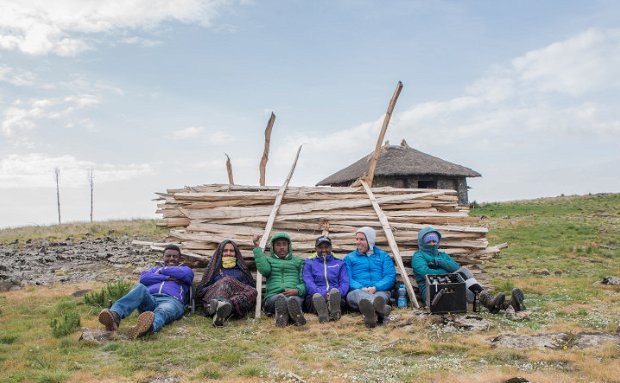
Ethiopia is re-opening its doors again to receive first guests after all necessary precautions have been put in place to make sure tourists can travel safely. However, borders have never been fully closed and internal travel restrictions where comparatively sound which was a great chance for the SimienEcoTours team to travel ourselves over the last couple of months and discover new destinations, get a personal feeling how it’s like to travel in Ethiopia during the pandemic and prepare great once in a lifetime opportunities for people willing to travel soon.
Let me tell you already in the beginning that travelling at the moment is so different from the normal. You might think of wearing masks, sanitizing your hands, checking temperature and other precaution measures. Yes, we did this all but what stays from our trips is amazement from spectacular lonely mountain worlds and nature refuges. Even some of the common sights surprised us with their pristine charm and friendliness from the times when tourism was still in its infancy in Ethiopia. Suddenly, there is time and with it authenticity in encounters with locals.
Within the last months the pandemic made travelling related to fears. Can I enter the country I want to travel to and re-enter my home country when coming back? What if I get sick while travelling? Do I get my money back when a trip has to be cancelled? Am I a potential transmitter while visiting other countries? Just to name a few. I don’t want to bother you any longer with these questions and answers. If you need information about this just follow our frequent updates on COVID-19 on our website. Here you get all the answers you might search for when still feeling unsecure to travel in Ethiopia. Our Travel Experts are also available for any further clarification. Feel free to get in touch with them.
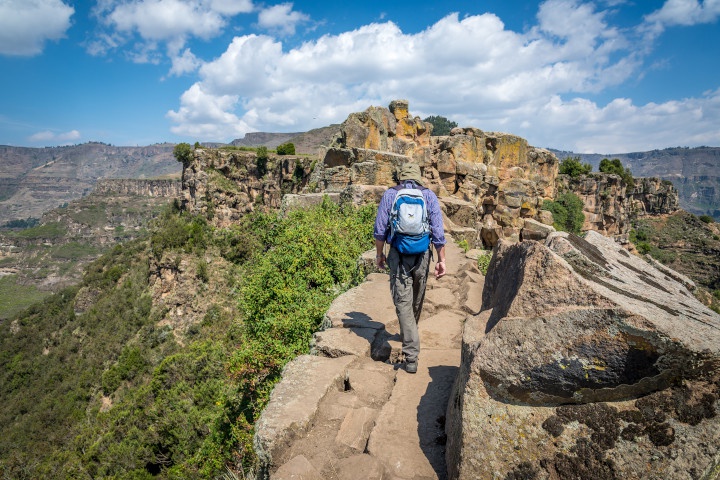
I guess it is time again to focus on what travelling is about. It is anticipation, curiosity, discovering, learning, understanding, relaxing and letting go from our day-to-day life. If so, you might like to get to know what happened on our trip to Lalibela during the pandemic.
Ethiopia is re-opening its doors again to receive first guests after all necessary precautions have been put in place to make sure tourists can travel safely. However, borders have never been fully closed and internal travel restrictions where comparatively sound which was a great chance for the SimienEcoTours team to travel ourselves over the last couple of months and discover new destinations, get a personal feeling how it’s like to travel in Ethiopia during the pandemic and prepare great once in a lifetime opportunities for people willing to travel soon.
Let me tell you already in the beginning that travelling at the moment is so different from the normal. You might think of wearing masks, sanitizing your hands, checking temperature and other precaution measures. Yes, we did this all but what stays from our trips is amazement from spectacular lonely mountain worlds and nature refuges. Even some of the common sights surprised us with their pristine charm and friendliness from the times when tourism was still in its infancy in Ethiopia. Suddenly, there is time and with it authenticity in encounters with locals.
Leaving the city
The first trip when we had the courage to leave Addis into the unknown lead us to see Lalibela and its surroundings. Somehow it felt like planning the adventure of my life considering all the pros and cons before I was willing to leave families behind in Addis. It sounds silly for a one week’s trip but it was still the time when panic was big and we feared that domestic flights might stop, ground transports could be limited and Regional States might come up with their individual quarantine regulations and we get stuck somewhere for days or even weeks.
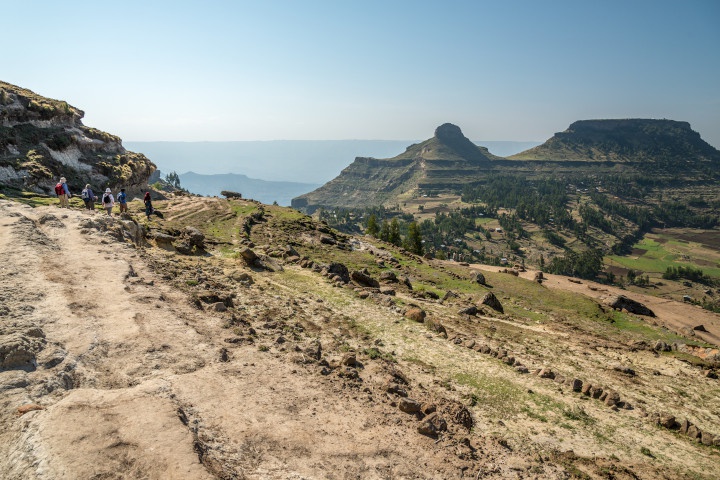
Finally, flights were booked and the team and I left for Lalibela. Upon arrival we were quite surprised that safety measures were in place. Our temperature was measured and contact details exchanged so that in case of sickness action could have been taken. I know Lalibela for more than ten years now and stopped counting how many times I have actually been there in the meantime. Still its mountainous scenery strikes me every time I come here. It is just impressive how the 3,300 meters high Mt. Asheten towers over the holy town of Lalibela with its eleven rock-hewn churches from the 12th century.
How is the situation in Lalibela?
No doubt for me as for almost all travellers the historical heritage here is a must see on every visit to Ethiopia. Lalibela developed from a place of orthodox pilgrimage into a touristic place where thousands of locals live from tourism. But since COVID-19 hit? How would it look like nowadays? These days everything remains closed and I am wondering how tourism entrepreneurs make their living in times of the pandemic. In next days, we would use our contacts in and around town to make food and services available. As an individual traveller it would become a challenge to plan activities these days. Everyone is happy to see us and expresses their hope for the new season to start. Restaurants and hotels open their gates only for us and serve us with friendliness and time. Even the bigger places in town spread a very pleasant and personal atmosphere these days. If the kitchen is not open due to the absence of the cook we get spontaneous invitations to the houses of the employees to join their families for meals. I know this will not be the case anymore as soon as Lalibela somehow returns to the new normal in the next coming months but for the time being there is a short window where hospitality reaches an authenticity not common for an otherwise touristic place where everyone rushes to make some money out of the tourists. Currently, everything is on hold and visitors become guests again. It is a nice feeling.
But what about the churches? Officially, all tourist sites were closed for visitors during the first months of the pandemic. But here is the thing, they were always open for locals and pilgrims and so are they now for us. It is a pleasure to see the rock-churches without any tourists at all. It reminds me of my first visits in Lalibela some twelve years back. At that time, there were no specific visiting hours for tourists and it was easy to mix with the pilgrims. As a visitor this was so emotional to see as it gave a deeper sense of meaning and spirituality to the buildings themselves. An aspect that got lost a bit with the introduction of visiting and praying hours when tourist numbers increased over the last years. It is actually nice to see that when a pandemic puts the world on hold, for the believers that come to the churches of Lalibela not so much has changed.
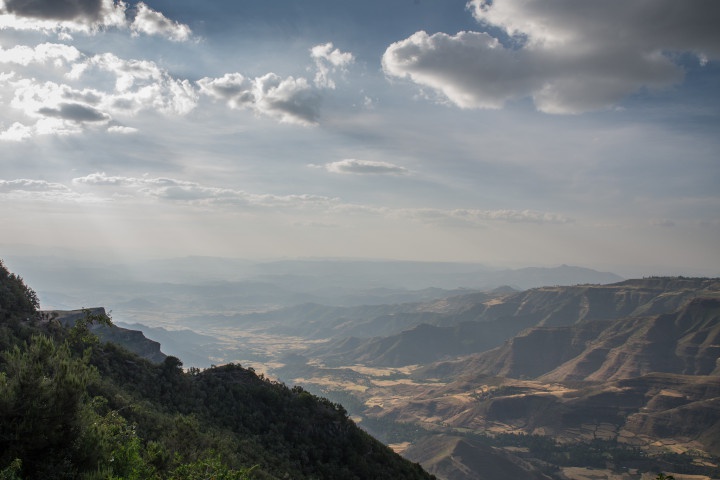
However, as visitors we feel responsible not to disturb this religious balance. We are wearing our face masks and take care to keep our distance. It is still a weird feeling to travel in such a way and therefore we decide for the loneliness of the mountains in the next couple of days where precautions become less of an issue. For us it is also a trial to see in how far outdoor and nature tours will be possible in the coming months when guests might want to avoid too close exchange with people.
Into the loneliness of the Lasta Mountains
High above Lalibela in the Lasta Mountains there are various excellent hiking opportunities in nature where we can let go from this constant feeling of exposing ourselves and others to a threat. Up here in the fresh mountain air we feel free to let go of the pressure to wear our masks. Our trailhead lies about 500 meters above Lalibela town close to the Asheten Monastery. Through green farmlands we set off for our two days trekking to the 4,011 meters high Zigit mountain which lies in the Mt. Abuna Yoseph Conservation Area.
We encounter the beauty of walking through farmlands and passing by farmers’ houses. It seems a normality that we have been missing out the last months living in Addis Ababa were hygiene and other regulations where put in place limiting our freedom. While herding cows and sheep kids play football and enjoy their lives in the countryside. It seems like the news of the pandemic have not reached yet to these remote corners of the country. When coming here we had the fear that we might not be welcome because locals could see us as a potential threat to their health. But the few people we meet along our way are all happy to see us. We ask about COVID and surprisingly they heard about it. Some consider it as a death bringing disease others see it more as something minor than a flu. Somehow it reminds me a bit about the wide range of opinions we see all over the place. Up here misinformation and conspiracy seems the same. However, smiles and excitement fill the faces of the farmers that cross our paths in the next days. Several community tourism opportunities exist in the Lasta Mountains and generated incomes for the locals over the last couple of years. Since COVID-19 outbreak there is no more additional income from the hiking tourism up here and it seems like people can’t wait to receive guests again. It is a good feeling to see their happiness about our unexpected visit and from now on there is no doubt that we took the right decision to hike here.
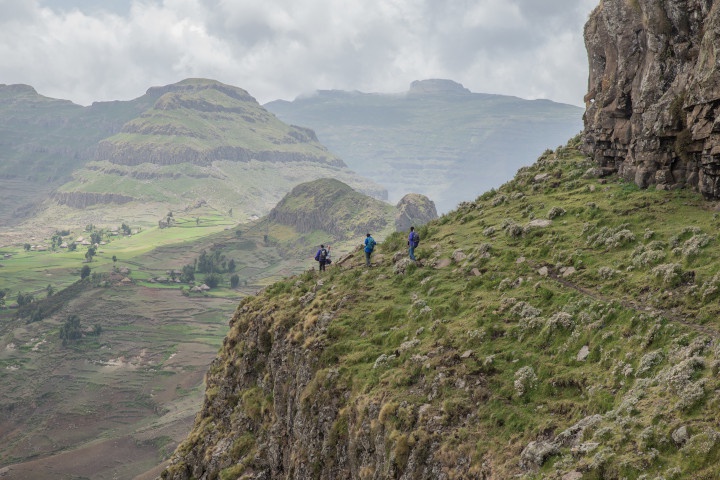
After six hours of hiking on the flat high plateau and some resting along the way we finally reach our overnight stay at Degosach Eco Lodge from where we will head towards the Mt. Abuna Yoseph Community Conservation Area tomorrow. Degosach nestles on a lofty hill top with amazing views into the lowlands. At 3,800 meters high above Lalibela we get cosy at the warm campfire that the guards prepare for us in the evening. For dinner we slaughter a sheep and exchange hikers stories while eating a traditional Ethiopian dinner with sheep meat and injera.
I guess it is one of the few moments in the last months where COVID-19 seems to be no issue at all anymore. We are quipping, laughing, eating and mingling with the guards of Degosach at the fireplace before heading towards our traditional guesthouses under the starry sky of Degosach.
The next day is an exciting day as we are heading towards one of the highest mountain ranges of Ethiopia. The first hours the trail leads us along the escarpment with spectacular views towards the lowlands. Along the way on one of the mountain ridges lies a small village where we get some rest and a cup of fresh Ethiopian coffee from the jebena - the traditional Ethiopian round coffee pot made of clay. The village marks the border towards the Mt. Abuna Yoseph Conservation Area. From now on the trail leads us through afro-alpine grassy meadows. The conservation area was once established to preserve these diminishing spots of nature and with it its wildlife. Gelada baboons are still very common at Mt. Abuna Yospeh as well as a small population of Ethiopian Wolves.
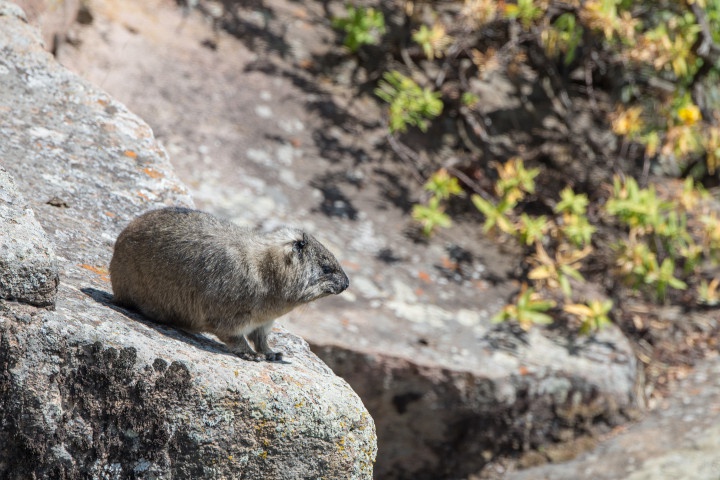
But our first attention falls on the majestic lammergeyer that soars above our heads along the escarpment. It seems like it wants to guide us the way towards our today’s goal - the 4,011 meters high summit of the Small Zigit Mountain that now for the first time appears close to our eyes. It is not the highest summit of the Abuna Yoseph range but by far the most spectacular - a rocky outcrop that rises from the grasslands with unforgettable lowland views.
Through a narrow and spectacular path we finally reach its base from where we start the last steep and bit challenging ascent towards its summit breathing in the fresh air up here with a little bit of adventure and freedom. It was also the moment when a new trip idea for our guests was born. After returning back to Lalibela and sitting together for a first refreshing beer we decided to share such kind of new adventures with our travellers not only in times of COVID-19 but also in the future. Just because they are great ways to explore and get to know Ethiopia!
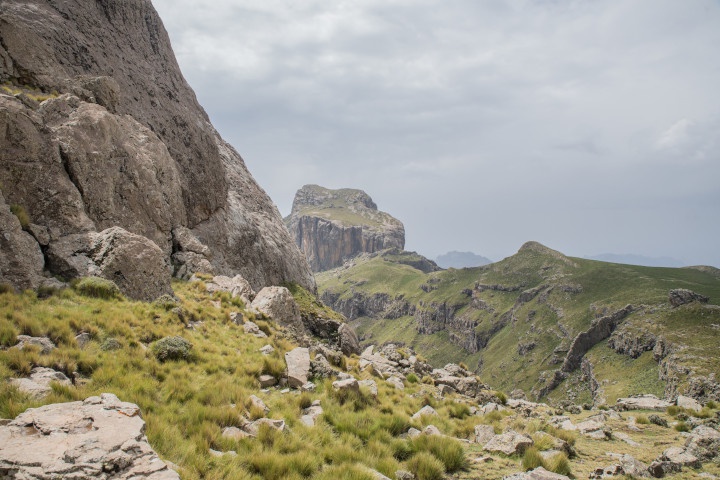
JOIN US ON ONE OF OUR NEW COVID-19 ESCAPE TRIPS!
In the aftermath of this inspiring trip, SimienEcoTours teams went out for more exiting adventures to Lake Tana, Simien Mountains National Park and the Gheralta Mountains to see what is possible when the country re-opens its doors for travelling. Now we are there, especially domestic travel is easy again and we have a small but fine selection of short private nature and outdoor trips for you where health risks are comparatively low as we mainly spend our time outdoors.
Furthermore, we worked on our internal Safe Travel Guidelines and trained our staff and guides to guarantee you low-risk journeys in times of the pandemic. We also adapted our booking terms to give you the chance for a really low risk booking with us. Cancelation is free until 5 days prior to your trip.
Further Reading
After more than half a year since the outbreak of the pandemic, Ethiopia re-opened for tourism again and we do know that safety will be one of the major concerns of travelers but also for our employees. To support the country's safe travel efforts at attraction sites, in hotels and restaurants tour operators are at the forefront to promote safe travel and train employees accordingly. A first COVID-19 Safe Travel Training has...
For those seeking a genuine experience, spectacular landscapes and the flares of authentic culture, look no further than Gurage. Over the last months we explored and designed tours specifically crafted to immerse visitors in the daily rhythms of Gurage communities, and this article tells you something about what expects you there.




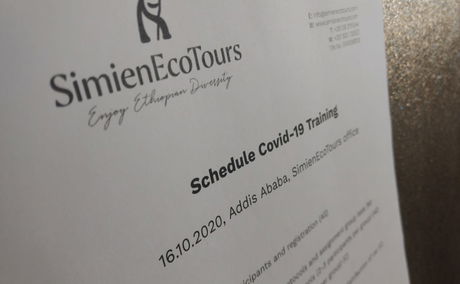
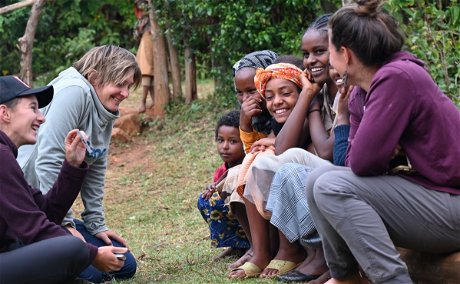
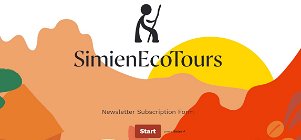
Share This Post